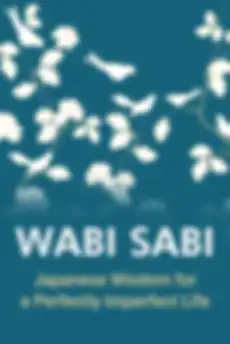1. The Life-Changing Magic of Tidying Up: The Japanese Art of Decluttering and Organizing by Marie Kondo
Chaos in your home mirrors chaos in your mind. This book suggests that you can change your thinking over the weekend — specifically by bringing harmony to your house. If your home is cluttered with things of your past and reflects an outdated worldview, you are unlikely to bring changes to your life. However, once you tackle this clutter, you'll feel liberated and ready to discover your new self. Don't be afraid that you'll have to declutter periodically. It's more likely that by shedding the weight of the past that holds you back, you’ll be less inclined to accumulate unnecessary items in the future.

The Life-Changing Magic of Tidying Up
2. Goodbye, Things: The New Japanese Minimalism by Fumio Sasaki
This is truly the best book about minimalism, teaching how to break free from unnecessary things. Our society is addicted to buying new possessions because our brains always look for novelty. We place immense value on material things, forgetting that our most important memories should be stored in our minds rather than on a shelf. Too many belongings distract us from our true selves, and adopting minimalism offers a solution. It's not just about getting rid of old things that no longer serve their purpose. It's also a mindset that will automatically keep your study, work, and rest space clean, increasing your level of focus and, therefore, productivity. Read more in our summary of Goodbye, Things.

3. Kaizen by Sarah Harvey
If you feel weighed down by long-established habits, the kaizen way may become your guiding light. Kaizen is a Japanese philosophy of daily improvement, which is impossible without a deep understanding of yourself and your values. Only by recognizing your genuine desires can you set meaningful goals for yourself. Divide your life into spheres and keep records regarding the improvement of each area. As you do this, you will notice changes in all aspects of life – career, relationships, and hobbies. This approach transforms not just surface behaviors but also fundamentally changes your mindset. Learn more about this approach in our Kaizen summary.

4. Wabi-Sabi by Beth Kempton
There is nothing more tiring than struggling with circumstances that are beyond our control. Wabi-sabi is a Japanese aesthetic that helps to accept imperfections, see beauty in them, and appreciate the simplicity of things. Originating from the tea ceremonies of feudal Japan, wabi-sabi is closely connected with nature. By embracing life's imperfections, you will achieve harmony with them, leading you to better relationships with your family and colleagues. You will find it easier to adapt to changes and accept challenges without stress. Wabi-sabi will teach you peace, and if you’re intrigued to learn how – here’s the summary:

5. The 5 AM Club by Robin Sharma
If you believe success is out of reach, it’s likely because you don’t effectively use the most crucial resource — time. This book will tell you how minor changes in your today affect your tomorrow. The key lies in rising early. Getting up earlier and dedicating this time to improving your body, spirit, and mind, you set yourself up for a successful day ahead. After waking, take a moment for solitude, letting the clarity of your mind strengthen you. Read more about how to live by the principle of "one more day — one more success" in our summary:

6. The Little Book of Yes by Noah Goldstein, Steve Martin, and Robert B. Cialdini
Imagine a world where everyone says "yes" to you. Whether it is a career issue or communication between people, you will receive approval for your ideas everywhere you go! Sounds like science fiction, doesn't it? In fact, it is quite achievable, and this book will show you how. It contains essays detailing effective persuasion strategies that can make the world align with your vision. These tips are universal, so once you master them, you will be able to try your skills in any area of life. Start your transformation today.

The Little Book of Yes
Each of us strives for harmony in all aspects of life, from career to interpersonal relationships. But transforming our external circumstances is impossible without first reshaping our inner worldview. There are many ways to organize thoughts and build resilience against daily challenges. Each case is unique, and only you can find out which approach motivates you most effectively.










